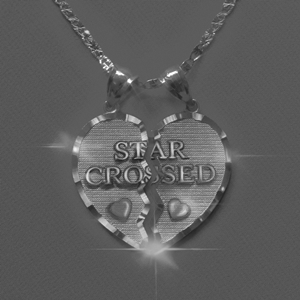On her fifth studio album, country music star Kacey Musgraves continues her ascent into superstardom.
“Star-crossed,” her most recent album, is an emotional look at love and heartbreak. Full of somber tracks, allusions to the tragedy of Romeo and Juliet and discussions about her recent divorce, the album strays far from the shimmering optimism of 2018’s “Golden Hour.”
In an interview with “Rolling Stone”, Musgraves shared she was enamored with Greek tragedy while writing this project. This influence can be seen in the three-act structure on display. The five-song acts do not always share themes and ideas, but the experiment works, and creates three distinct sections of the album.
In previous endeavors, Musgraves was never one to shy away from expressing her emotions, and “star-crossed” is no exception. The title track, which also serves as the album’s opener, is a melancholy exploration of an ending relationship. Musgraves waxes poetic about her former relationship and lovers being woken from a “perfect dream,” into darkness.
Most relationships start off with that perfect dream. On “good wife”, Musgraves recalls the early days of her marriage, where she asks God to help her to be a good partner for her husband. She sings about how he needs her, and at the end admits that she needs him as well. She also sings that she could “probably make it on (her) own,” signifying that early doubt she was feeling.
The remainder of the first act shows Musgraves exploring poppier sounds and lyrics. “Cherry blossom” is an upbeat song ostensibly about Japan and Tokyo’s famed cherry blossoms. “Simple times” has Musgraves wishing she could return to her teenage years “cause being grown up kinda sucks.” “If this was a movie..” signifies the end of act one, and is a melancholic wish for her partner to “run up the stairs, hold my face, and say we’re being stupid.”
The first act, as well as the rest of the album, suffers some lyrical issues. Musgraves is an excellent songwriter, but many of the lyrics lack metaphorical meaning and leave little room for interpretation. This is a minor complaint, as most of the lyrics flow well and make sense, however literal they may be.
The second act kicks off with “justified,” one of the album’s three singles. The track is a look into Musgraves’s mixed feelings after her divorce. She sings about needing time to heal and how she hates and loves the subject simultaneously. After this comes “angel,” a track laden with ethereal acoustic guitar and vocals, with themes of wishing perfection on herself and her ex-husband.
Up next is “breadwinner,” a personal highlight of the album in my view. In this song, Musgraves warns her ex’s potential new lovers. Musgraves appears to think her success made her ex resent her, even though he claimed otherwise. The track is an excellent exploration and criticism of traditional gender roles.
The ending tracks of the second act are slow, methodical pieces. On “camera roll,” the singer looks through her phone and feels intense sadness while viewing old relationship pictures. She says “I don’t wanna see ’em, but I can’t delete ’em,” giving the song a tinge of relatability for anyone who has experienced a tough breakup. “Easier said,” the final song of act two, is somewhat of a lowlight. There are no memorable lines or moments like there are on so many other tracks.
The third act starts out strong with “hookup scene,” a commentary on the culture surrounding dating apps and online dating. Musgraves makes it clear she has no opposition to this type of dating, but that she is not a fan herself. We transition to “keep lookin’ up” next, a classic Kacey Musgraves country song, with some pop elements influenced by her new sound. In this uplifting song, the singer touches on her East Texas upbringing, where the stars are “big and bright.” She speaks about her father encouraging her to keep looking up to the sky and to not let the world get her down.
“What doesn’t kill me” is another upbeat track with both depressing and inspiring lyrics. She sings of going to hell and back and her “golden hour faded black,” a clear reference to her previous studio album. She also is inspired on this track, saying that what does not kill her “better run.”
During the penultimate track, “there is a light,” Musgraves continues to uplift herself, singing that even though her marriage is ending, she still has hope in herself. This song bends genre, showcasing Musgraves’s refusal to be pinned down and pigeonholed into one category. “Gracias a la vida,” the album’s closer, is a cover of Chilean folk singer Violeta Parra’s song. The cover is hauntingly beautiful, and the lyrics are powerful. Parra wrote it as a sort of love letter to life, a year before her suicide. Musgraves gives the song justice, belting out a gorgeous rendition of a sad song.
“Star-crossed” is an album of contrasts, with extremely high highs, and some devastatingly low lows. It is at times dazzling with its production, somber with its lyrics and hopeful in its outlook. Fans of classic country Musgraves will find moments they enjoy, while fans of her new sound will likely be pleased by the entire tracklist. It may not stand the test of time like Golden Hour surely will, but it is a significant moment in Kacey Musgraves’s discography.









